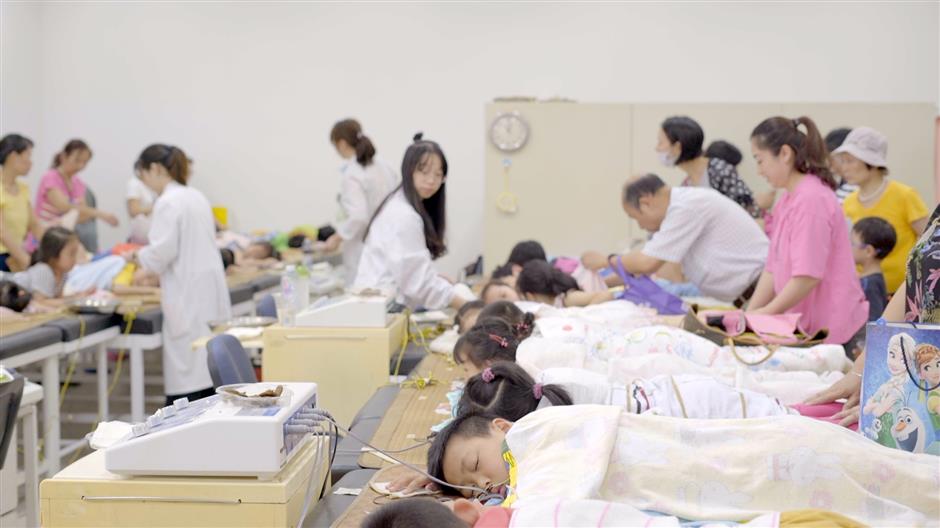Heat lingers, sending more to hospital

Children seek TCM treatment in Yueyang Hospital to get their cold-related illness treated in summer.

Children seek TCM treatment in Yueyang Hospital to get their cold-related illness treated in summer.
Shanghai’s ongoing heatwave will persist into the days ahead, according to local weather authorities.
Yesterday marked this year’s 14th day with a high temperature above 35 degrees Celcius, with the downtown Xujiahui weather station topping out 35.1 degrees. Jiading was the city’s hottest district though, with a high of 35.7 degrees.
Yesterday also marked liqiu, or the start of autumn in the Chinese lunar calendar. But autumn, meteorologically, won’t come until late September or early October.
For the rest the week, a subtropical weather system will dominate the city’s skies and fuel a continuation in the heat. The days ahead are expected to be sunny to partly cloudy, with highs potentially exceeding 37 degrees, according to the Shanghai Meteorological Bureau.
As the mercury continues to soar, local hospitals are treating a growing number of patients, according to Shanghai health authorities.
Fourteen of the city’s hospitals have recently seen more than 10,000 patients per day, up 10 percent compared to the same period last year. Some large hospitals, such as Renji and Zhongshan hospitals, have admitted as many as 16,000 patients per day.
“Elderly people can easily feel unwell due to temperature changes and they are vulnerable to acute cardiovascular and cerebrovascular diseases,” said Shan Mingmin, a nurse at Zhongshan Hospital.
In July, the Obstetrics and Gynecology Hospital of Fudan University saw the number of patients admitted to its emergency ward jump 11.5 percent compared with June. The hospital is also dishing out heat-dispelling herbal soups to its patients.















